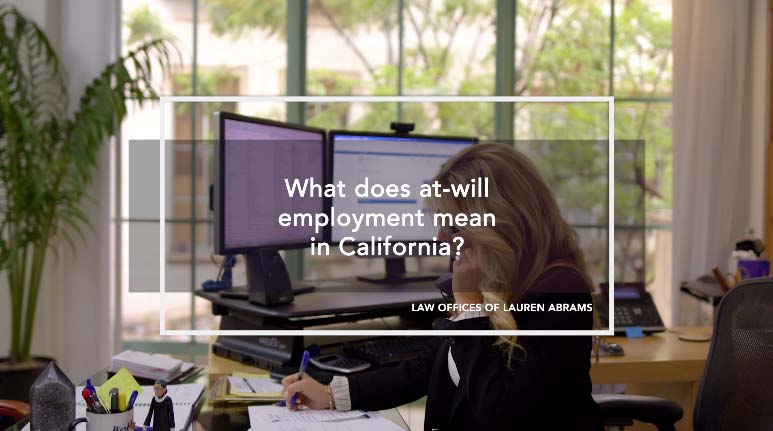
What Does At Will Employment Mean?
You may have heard the term ““at will employment” but what does this actually mean? In this short video, employment attorney Lauren Abrams explains what at will employment entails.

You may have heard the term ““at will employment” but what does this actually mean? In this short video, employment attorney Lauren Abrams explains what at will employment entails.

How do the wage gap laws protect women in the workplace? In this short video, employment attorney Lauren Abrams explains wage gap laws and what women in the workplace can do if they are being discriminated against.

Are you facing retaliation in the workplace? Employment law attorney, Lauren Mayo-Abrams lays out the steps you can take if you are experiencing retaliation in the workplace.

2020 has been, among other things, a year in which a spotlight has shone on the issue of inequality in a variety of areas. Those in California are no strangers to the issue of equality, especially in terms of pay, as it has been a hotbed issue for the last several years.

As state and local governments across the country debate the merits of America’s grand reopening, employees continue to express concern over whether returning to their place of employment will subject them to heightened risk of contracting Coronavirus and either becoming seriously ill or spreading the disease to their families.

You cannot be treated differently from your fellow employees because of Coronavirus. You cannot be excluded, told to go home (while everyone else stays at work), told to stay at work (while everyone goes home), told to go get blood tests for the virus or treated differently because your employer “thinks” you might have, or be carrying a strain of, the virus.